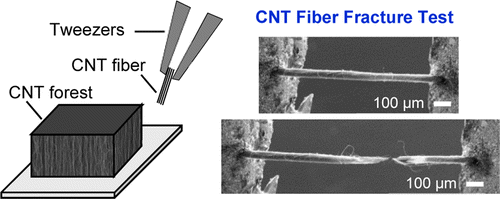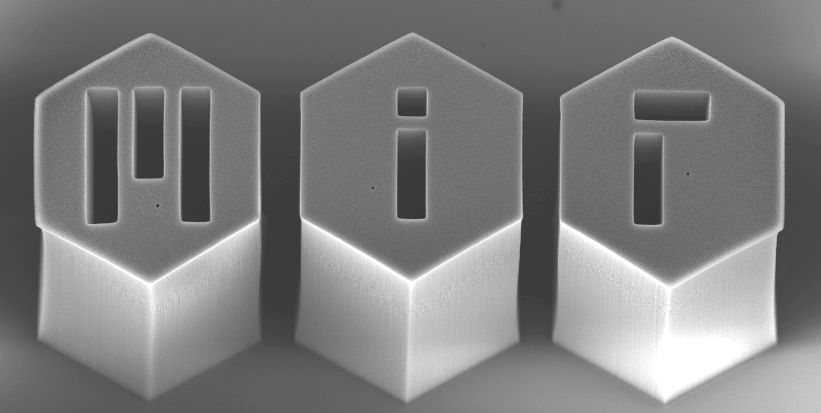F.A. Hill, T.F. Havel, A.J. Hart, C. Livermore. Enhancing the tensile properties of continuous millimeter-scale carbon nanotube fibers by densification. ACS Applied Materials and Interfaces, 2013, 5 (15), pp 7198–7207. [http://pubs.acs.org/doi/abs/10.1021/am401524q]

This work presents a study of the tensile mechanical properties of millimeter-long fibers comprising carbon nanotubes (CNTs). These CNT fibers are made of aligned, loosely packed parallel networks of CNTs that are grown in and harvested from CNT forests without drawing or spinning. Unlike typical CNT yarn, the present fibers contain a large fraction of CNTs that span the fibers’ entire gauge length. The fibers are densified after growth and network formation to study how increasing the degree of interaction among CNTs in a network by various methods influences and limits the mechanical behavior of macroscopic CNT materials, particularly for the case in which the continuity of a large fraction of CNTs across the gauge length prevents failure purely by slip. Densification is carried out using various combinations of capillary-driven densification, mechanical pressure, and twisting. All methods of densification increase the fiber density and modify the nanoscale order of the CNTs. The highest strength and stiffness values (1.8 and 88.7 N tex–1, respectively) are observed for capillary-densified fibers, whereas the highest toughness values (94 J g–1) and maximum reversible energy density (1.35 kJ kg–1 or 677 kJ m–3) are observed for fibers densified by mechanical pressure. The results suggest that the path to higher performance CNT materials may lie not only in the use of continuous and long CNTs but also in controlling their density and nanoscale ordering through modification of the as-grown networks, such as by capillary-driven densification.
